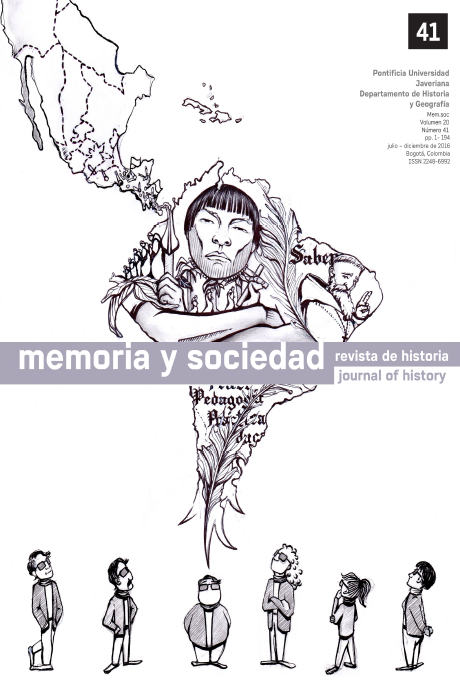Resumen
Este artículo propone una interpretación del modo en que la doctrina de Miguel Antonio Caro, en particular sus concepciones de historia, progreso y orden, dieron lugar a un pensamiento sobre la lengua que se configura entre dos tendencias: la antigua y la nueva, la clásica y la moderna. Respecto a esta dinámica oscilante se presenta un análisis de la política de la lengua, implementada por algunos miembros de la Academia Colombiana de la Lengua, teniendo como principal referente teórico el estudio de Michel de Certeau, Dominique Julia y Jacques Revel, acerca de un saber lingüístico definitivo para la comprensión de la lengua nacional y el tratamiento de los patois —dialectos- vigentes en una nación. El argumento central consiste en que la tensión que resulta del acogimiento de una filosofía tradi-cionalista y la adopción de elementos de un saber científico sobre la lengua, permitió que un grupo específico de académicos pensara una forma particular de avanzar en la civilización y consolidación de un Estado-Nación moderno.
La revista Memoria y Sociedad se encuentra registrada bajo la licencia Creative Commons Reconocimiento 4.0 Internacional. Por lo tanto, esta obra se puede reproducir, distribuir y comunicar públicamente en formato digital, siempre que se reconozca el nombre de los autores y a la Pontificia Universidad Javeriana. Se permite citar, adaptar, transformar, autoarchivar, republicar y crear a partir del material, para cualquier finalidad (incluso comercial), siempre que se reconozca adecuadamente la autoría, se proporcione un enlace a la obra original y se indique si se han realizado cambios. La Pontificia Universidad Javeriana no retiene los derechos sobre las obras publicadas y los contenidos son responsabilidad exclusiva de los autores, quienes conservan sus derechos morales, intelectuales, de privacidad y publicidad.
El aval sobre la intervención de la obra (revisión, corrección de estilo, traducción, diagramación) y su posterior divulgación se otorga mediante una licencia de uso y no a través de una cesión de derechos, lo que representa que la revista y la Pontificia Universidad Javeriana se eximen de cualquier responsabilidad que se pueda derivar de una mala práctica ética por parte de los autores. En consecuencia de la protección brindada por la licencia de uso, la revista no se encuentra en la obligación de publicar retractaciones o modificar la información ya publicada, a no ser que la errata surja del proceso de gestión editorial. La publicación de contenidos en esta revista no representa regalías para los contribuyentes.


